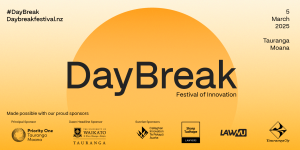A DNA test that can detect how well a patient metabolises commonly prescribed medications could save New Zealand millions and improve health outcomes.
At a glance
- Health innovator and provider Pinnacle Ventures has released a DNA test that can detect how a person responds to common drugs.
- Ventures is trialling the test on 3000 high risk patients to demonstrate its benefits in mainstream healthcare.
- The test results are put on a patient’s health record and stay there for life, helping health professionals make more precise prescribing decisions.
The science has the potential to save the country millions in inappropriately-prescribed medicines and adverse reactions.
It’s [Callaghan Innovation’s support] been really crucial in the sense that it’s enabled us to take the programme from a low volume sampling activity to mainstreaming it with some volume and start to run it as a commercial operation.
- John Macaskill-Smith, CEO, Pinnacle Ventures
A middle-aged man taking a statin to lower his cholesterol had tried to tell his doctor the medication was giving him aches and pains.
It turns out the man has an elevated risk of muscle-related side effects from that particular statin.
A woman who travels a lot for work has been taking increasing doses of melatonin to cope with the time zone changes. It’s emerged she is a non-responder metaboliser for this medication – meaning it won’t have a noticeable effect at any dose, because it is being removed from her body too quickly.
These are the kind of findings Pinnacle Ventures is helping patients and their healthcare professionals make as it develops a ground-breaking test showing how a person’s genetic factors influence their response to medications.
In the case of the man with high cholesterol he’s taken his report back to his GP and is trialling a more suitable statin, with much improved outcomes. Another patient who is on multiple medications for a complex long-term cardiovascular condition was reassured when a new medication his doctors were looking at adding got the ‘green for go’ tick in his report.
With the swab of a cheek Pinnacle Ventures’ myDNA test can tell how well a patient will metabolise around 60 percent of the most commonly prescribed medications.
Known as pharmacogenomics, or PGx for short, the science is new to New Zealand medicine. But it is in regular use in other countries such as the US, where pharmaceutical manufacturers are required by the FDA to publish PGx information with all drugs, and it has the potential to save millions of dollars in unnecessary prescribing.
The test results are also enduring, meaning the patient may never need to be retested. The information stays in their electronic health record and can assist with future medication prescribing, Pinnacle Ventures CEO John Macaskill-Smith says.
“We think that’s quite a good return on investment that you can get off a relatively cheap test, and the health system needs to get its head around it.”
DNA insights
Ventures is part of the Pinnacle Group, as network of primary and community providers which cares for half a million people across the central North Island including Gisborne and Taranaki. As part of the PGx launch programme the group is targeting 3000 high risk individuals within its clinical network – patients who are on four or more medications, and who are struggling to manage conditions such as diabetes, cardiovascular disease, and mental health problems.
The test will help patients and clinicians understand responsiveness to common medicines such as statins, antidepressants and pain relievers. It will also provide insight into what type of diet and exercise suits patients best, including how they respond to caffeine.
The caffeine test is in there mostly because it’s easy to understand and demonstrates to patients what PGx is all about, Macaskill-Smith says. He himself has discovered that he’s an ultra-rapid metaboliser of caffeine but shouldn’t drink it after mid-afternoon or it will disrupt his sleep.
A trained GP will have a conversation with the patient to help interpret the test results. The practitioners will be feeding back during the trial and tracking the number of medication changes they make as a result of the new insights into their patient’s wellbeing.
The second core element of the project is the development of a tool to help clinicians. As a prescription for a medication is drafted, an electronic decision support tool in the background checks the bio markers from the patient’s DNA test and matches that with latest evidence from internationally curated sources. This will trigger an alert if there is a match and provide access to alternatives.
Ultimately the aim is to build up the body of data around the New Zealand DNA, Macaskill-Smith says. Ventures is partnering with key iwi groups, Auckland and Otago Universities, and Callaghan Innovation to develop a better understanding of how New Zealand’s unique populations respond to different medications. “Ethnicity plays a big part in how a person metabolises drugs, but the clinical trials that prescribing information is currently based on very rarely involves Māori or Pasifika test subjects,” he says.
While testing is free for the participants of the PGx trial, Ventures is also offering the tests direct to any New Zealanders who wish to pay for it.
Three different types of tests will be available – one looking at how the person processes medication, a ‘lifestyle’ test focusing on how the body metabolises different diets and what type of exercise is best, and a combination test that does both.

Pinnacle Ventures CEO John Macaskill-Smith
Starting a pharma revolution
There is a lack of knowledge in the New Zealand health sector about the benefits of PGx, Macaskill-Smith says. There is also an absence of regulation around use of the data, which is why Pinnacle Ventures is trialling PGx in the manner it is – all the test results will go on the individual patients’ secure health records.
Callaghan Innovation’s support and vision around the project has been vital, he says.
“Callaghan Innovation came in and said, ‘wow, there’s a pretty big opportunity for New Zealand Inc to get ahead here’.
“It’s been really crucial in the sense that it’s enabled us to take the programme from a low volume sampling activity to mainstreaming it with some volume and start to run it as a commercial operation.”
Callaghan Innovation spent time understanding pharmacogenomics and the move towards precision medicine, and how this could be turned into a commercial model, adviser Mark Robinson says.
“We believe in what Pinnacle Ventures is doing and the strong social elements to it, and it’s understanding too that there is a very high opportunity cost,” Mark says. “If they didn’t do the project, think about the wastage in unnecessary and ineffective prescribing.
“We see huge potential for this sector. There are bits and pieces of this happening around the world, but not in the same way as it’s being done here in terms of general practice.”
It can also help to build a New Zealand-specific genome, including our unique Maori and Pacific Island populations, and over time this can help to reduce inequalities in health outcomes, Mark says.


























